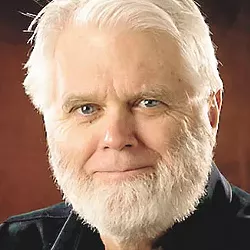OK, let's try to blur, just for a few moments, our President and his midnight tweeting; let's even try to set aside his obsequious display earlier this month at the G20 summit in Hamburg, Germany, where he diminished his own office and country by applauding an autocratic leader who no doubt influenced the 2016 American presidential election. So while we can't ignore Donald Trump, even when we try, let's see if we can at least divert our attention; not easy, but... surely we can find other absurdities to examine.
In this spirit, I direct your attention to Chicago Mayor Rahm Emanuel's proposal to require high school seniors to have a life plan. He wants to require them to show proof they've been "accepted into college or the military, or a trade or a 'gap year' program."
Emanuel's intention, so it seems, is to graduate kids into "paying jobs." But through a plan? At 18? As a graduation requirement? This is the kind of proposal that gives liberals a bad name.
If asked, I would recommend that the kids "plan" to become accomplished bank robbers. Willie Sutton might be a good role model. It was reported that Sutton, when asked why he robbed banks, said, "Because that's where the money is."
Why not Willie Sutton? Consider that he never killed anyone. He relied on guile and disguises, and he was the master of craftiness. All the traits of any successful Wall Street investment banker, and also traits — if it hadn't occurred to you — associated with the present part-time occupant of the White House.
Later in life, Sutton claimed he never said that he robbed banks for money; rather, that he robbed banks for the thrill of robbing banks. So he not only had a job, he was "happy in his work." In the business world, they call this a "win-win."
Which brings us to the "gap year" option. Here, Rahm Emanuel might be onto something — not a "required" something, but an "opportunity" something. Alas, we all know how this would unfold. Adults — the "experts" — would "professionalize" the idea, which, of course, would drive out all experimentation and spontaneity. Students would be herded off to see the school's "Gap Year Specialist."
In his new book, The Vanishing American Adult: Our Coming-of-Age Crisis — and How to Rebuild a Culture of Self-Reliance, Ben Sasse, a relatively moderate Republican senator (yes, there are a few) from Nebraska, indirectly addresses Emanuel's concerns.
Sasse, with a Ph.D. from Yale, urges a return to the "old-fashioned values." He sees problems everywhere — marriages taking place later in life, the ever-growing number of young people living at home, kids who don't know how to work and more.
Writing in The Atlantic, Emma Green sums up Sasse's argument:
"He believes that Americans have lost their sense of personal integrity and discipline. For the country to deal with the troubles ahead — including automation, political disengagement, and the rise of nativist, huckster politicians, he says — people must recover their sense of virtue. The republic depends on it."
It's no coincidence that since 2008, everything Sasse laments has spiked. My guess? The millennials don't count on much. The nomination of Hillary Clinton, followed by the election of Donald Trump, did nothing to restore confidence.
Green points out that Sasse "pays little attention to the real divides in income, race, and religious conviction that have left many Americans feeling like they live among strangers in a country that wasn't built for them. Some of his ideas seem punitive, showing the dark side of the Protestant work ethic he so cherishes." (To be fair, by confusing insights for proposals, Green does Sasse a bit of a disservice.)
I have four grown "boomer" children from a first marriage who work hard, and a millennial from a second, who struggled first with the 2008 financial collapse and now confronts the trickle-down effects from that disaster.
I turn 79 this year and frankly, even I don't recognize much in this book that relates to my growing-up years. I'm a late Depression/World War II "Navy Junior." Lots of moves. Considerable dislocation. Social problems. And a father who came back from the war with serious problems. And I wasn't unusual.
Nary a "Nebraska story" in the mix.
Seems to me that Sasse has produced a book that could only have been written by a "fifth generation Nebraskan" who is just 45 years old.
Still, as Green and others suggest, if we consider the book to be a conversation starter about a serious question, it's well worth the read.
Not public service viewed more broadly, not the arts, not the Sermon on the Mount, but "doing right by doing well" and who pulled it all off better than Willie Sutton. ♦


















